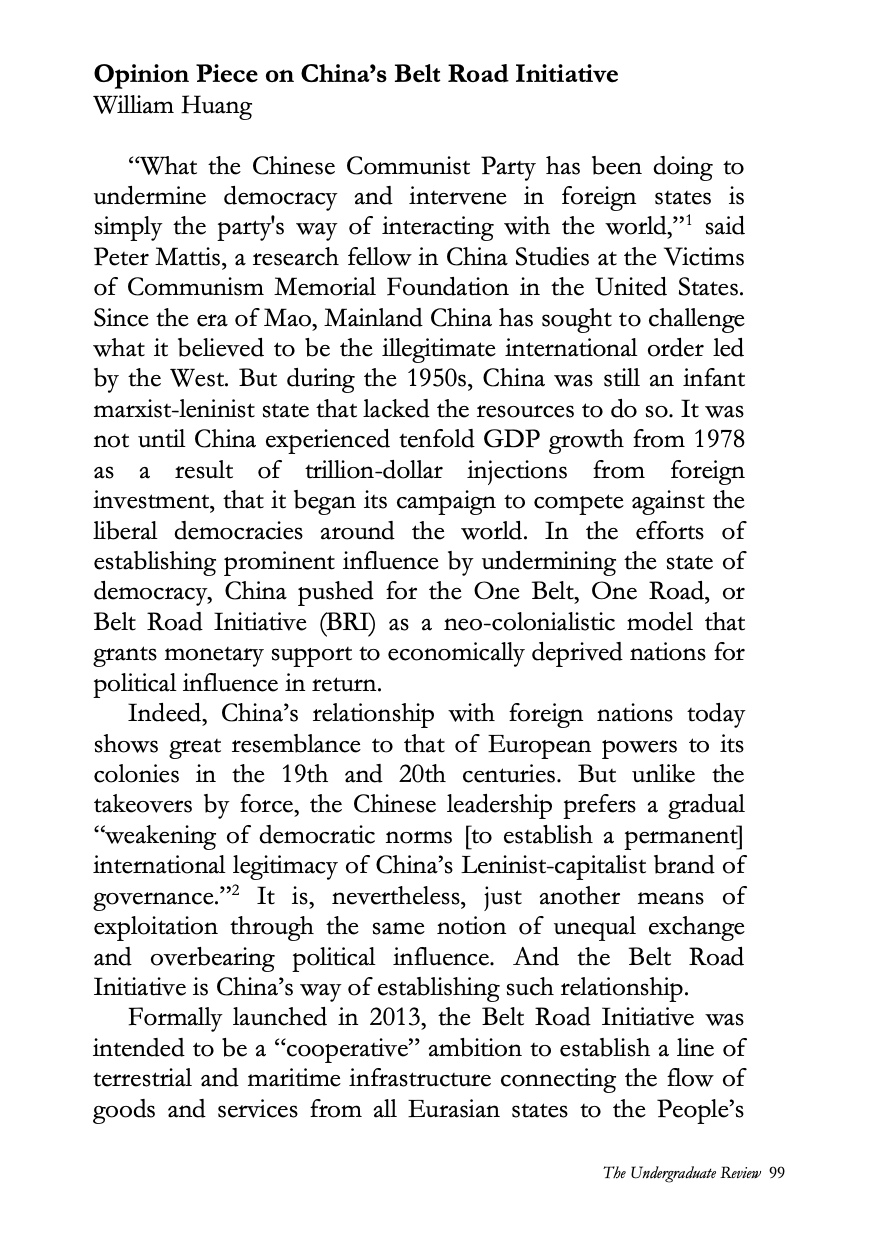Opinion Piece on China’s Belt Road Initiative
Abstract
“What the Chinese Communist Party has been doing to undermine democracy and intervene in foreign states is simply the party's way of interacting with the world,”1 said Peter Mattis, a research fellow in China Studies at the Victims of Communism Memorial Foundation in the United States. Since the era of Mao, Mainland China has sought to challenge what it believed to be the illegitimate international order led by the West. But during the 1950s, China was still an infant marxist-leninist state that lacked the resources to do so. It was not until China experienced tenfold GDP growth from 1978 as a result of trillion-dollar injections from foreign investment, that it began its campaign to compete against the liberal democracies around the world. In the efforts of establishing prominent influence by undermining the state of democracy, China pushed for the One Belt, One Road, or Belt Road Initiative (BRI) as a neo-colonialistic model that grants monetary support to economically deprived nations for political influence in return.



